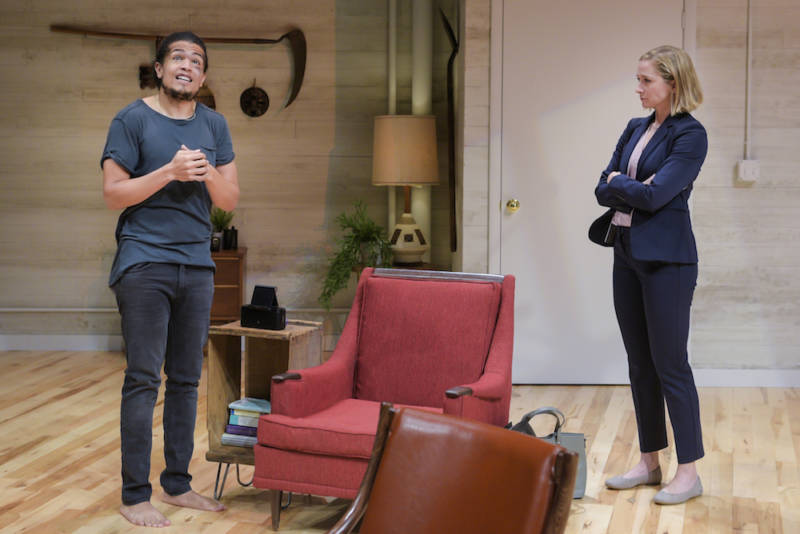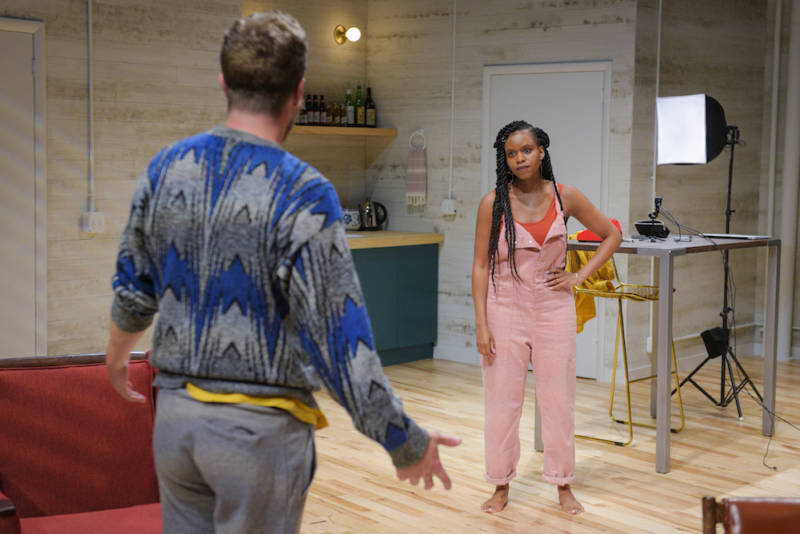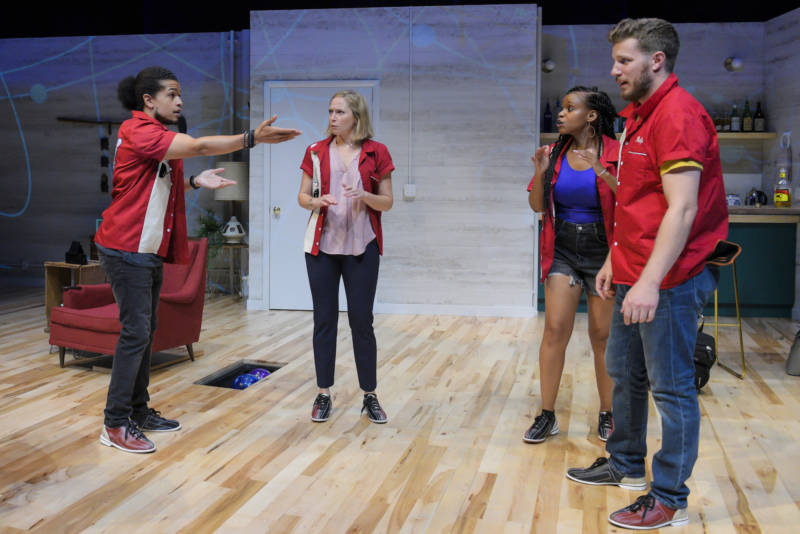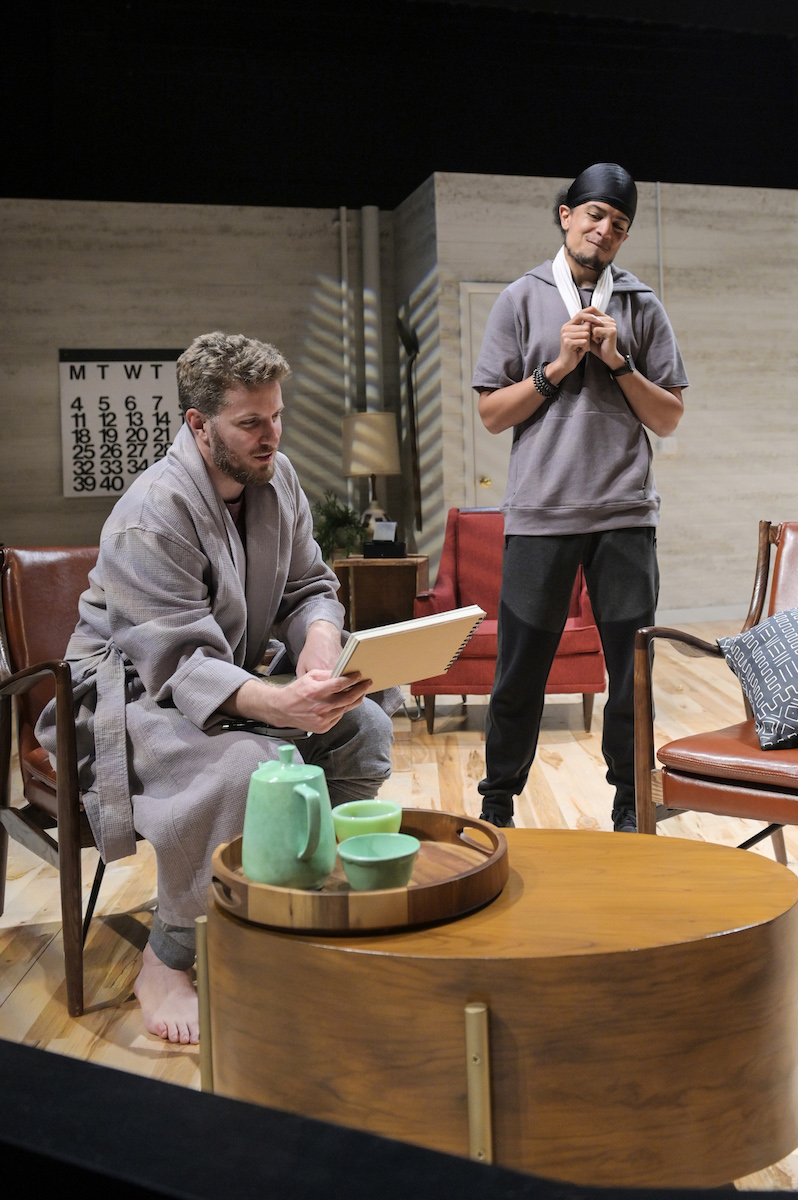The willingness of audiences to suspend disbelief gives live theater the ability to explore unfamiliar and speculative terrain, even from a stage set prosaically with the trappings of a middle-class household. In Suzan Lori-Parks’ White Noise, which runs through Nov. 10 at Berkeley Repertory Theatre, we’re thrown headfirst into the improbable scenario of four friends embarking on an experiment with modern-day slavery. It’s the kind of experimental philosophical puzzle that live theater feels especially suited to exploring.
Four characters—two male, two female; two black, two white—are busy confronting the ways in which their reality is falling short of their aspirations. Leo (Chris Herbie Holland) is a visual artist who’s finding it increasingly impossible to sleep, and therefore create. His girlfriend Dawn (Therese Barbato) is a lawyer who feels like she should be hired as a partner, but doesn’t want to stay with her dead-end firm. Their pals, fellow mixed-race couple Ralph (Nick Dillenburg) and Misha (Aimé Donna Kelly), are similarly frustrated as an adjunct professor passed over for tenure and a livestream personality, respectively. It all feels deliberately mundane.

But mundanity is not a hallmark of Lori-Parks’ work, and almost without warning she has Leo propose the preposterous during a friendly round of bowling. What if he were to sell himself temporarily as a black slave to Ralph, his white friend who just happens to have a large trust fund at his disposal? It’s an audacious proposal that immediately elicits a panicked reaction from his friends. But Leo’s mind is made up; he’s even had a contract drawn up. For the biblically-significant number of 40 days, Leo will exile himself to the wilderness of servitude, and in return, he’ll gain the peace of mind that being under the “protection” of a “big dog” will bring him.
Consent isn’t really a central theme in the play, but a question this scenario inadvertently raised for me is: What if the characters had taken the time to include some sort of safeword in Leo’s slave contract? Master-slave relationships are a working reality in the kink community, which might have supplied a blueprint for Leo’s idea. Instead, Leo gets his contract drawn up by a lawyer who specializes in prenups. This leads to a series of escalating abuses of power on the part of Ralph that Leo has no way to check, and has not prepared himself mentally to face.
Practically before the ink is dry on the signed contract, Ralph begins adding “amendments” to it, further curtailing Leo’s words, actions, and ability to protest, and granting himself the unconditional permission to “discipline” his new property. Scratch the surface of any frustrated white man and you’ll find a supremacist waiting to emerge, Lori-Parks seems to suggest. Where this production falters is in its effort to make that idea feel revelatory.

Under the direction of Jaki Bradley, each character’s emotional disconnect is so profound that even the most charged lines are sapped of strength. When an aggrieved Ralph describes his university’s decision to deny him tenure, he announces that he’ll “kill them all” with the affectless delivery of a man asking for salt. When Leo tries to justify his radical proposal by referencing his “unarticulated self-loathing,” he sounds as if he’s quoting from a textbook on race relations rather than a genuine place of personal pain.



